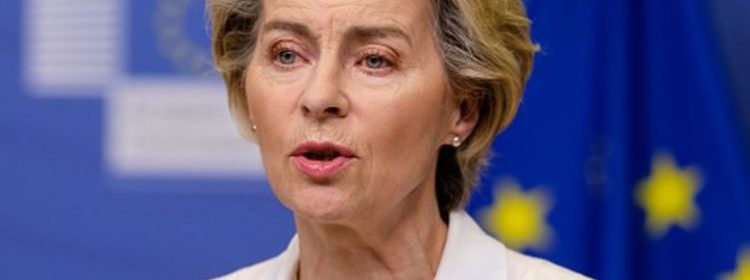AstraZeneca vaccine EU snub continues: 14,000 doses thrown away in one month in Czechia

AstraZeneca vaccine: Dr Green shares what's in Oxford jab
We use your sign-up to provide content in ways you’ve consented to and to improve our understanding of you. This may include adverts from us and 3rd parties based on our understanding. You can unsubscribe at any time. More info
The Oxford jab has been snubbed around the EU after a smearing campaign against its side effects conducted across the whole continent since it was approved by the European Medicine Agency (EMA). Concerned Europeans are still preferring Moderna and Pfizer jabs over AstraZeneca’s forcing healthcare workers to throw away expired vials.
In the Czech Republic, 14,000 doses were discarded last month.
The regional vaccination coordinator Robin Šín told the Czech radio station Radiožurnál: “There was simply no interest in the AstraZeneca vaccine. We were told to keep these vaccines and see what to do next according to the situation.”
The Czech government recommended the Anglo-Swedish jab only for those above 65 in June.
The move discouraged people from accepting the jab altogether, according to doctors.
A “Save the vaccine” database has now been launched to ensure vaccines are not thrown away and instead are donated to developing countries still lagging behind the rest of the world’s vaccination programmes.

More than 200,000 doses have already been donated to Asia.
AstraZeneca vaccines that were already ordered by Czechia and to be delivered to the country next month are destined to be donated under the scheme.
It comes as the head of the Oxford jab, Pascal Soriot, said that booster vaccines may not be necessary for everyone in Britain and rolling out third doses too quickly would be an “unnecessary burden” on the NHS.
Writing in The Daily Telegraph alongside the company’s executive vice-president of biopharmaceuticals R&D Sir Mene Pangalos, the chief executive called for patience from the Government, stressing the UK was “a few weeks away” from having a definitive answer on the effectiveness of two doses in providing “continued, protective immunity”.
READ MORE: Italy plots to remove key rule keeping euro alive
They said: “Moving too quickly to boost across the entire adult population will deprive us of these insights, leaving this important decision to rest on limited data.
“A third dose for all may be needed, but it may not. Mobilising the NHS for a boosting programme that is not needed would potentially add unnecessary burden on the NHS over the long winter months.
“Because NHS staff and resources are scarce, another national mobilisation would potentially leave us with fewer resources for cancer screenings and the other care provided by doctors and nurses each day.”
Their comments come after vaccines minister Nadhim Zahawi told MPs a vaccine booster programme is “ready to go” as soon as the scientific advice for the scheme is signed off.
More than half a million people with severely weakened immune systems and who are most at risk from COVID-19 will be offered another vaccine dose beginning this month, following a recommendation from the Joint Committee on Vaccination and Immunisation (JCVI).
DON’T MISS:
Trump’s legacy continues! Why Trump is STILL giving Biden a headache [INSIGHT]
Brexit LIVE: Uproar as polluters told to dump raw sewage into rivers [LIVE BLOG]
National Insurance fury as care cap doesn’t cover food [ANALYSIS]

But that announcement is separate from any decision on a booster programme, with news on this expected soon.
Mr Zahawi added that he hopes the virus can be dealt with “year in, year out” without having to take the “severe measures” seen last December, telling BBC Breakfast: “Vaccines have given us the ability to reduce infections, to save 100,000 lives.
“It is through the booster programme that I hope … we can transition the virus from pandemic to endemic status and deal with it year in, year out.
“It is going to be with us for many years – but not have to close down our economy or take the severe measures we had to sadly take in December of last year.”
The UK’s chief medical officers are currently reviewing the wider benefits of vaccinating 12 to 15-year-olds, such as minimising school absences, after the JCVI declined to recommend a widespread rollout to the age group on health grounds alone.
A total of 668 deaths registered in the week ending August 27 mentioned COVID-19 on the death certificate, according to the Office for National Statistics (ONS) – the highest number since 719 deaths were registered in the week to March 26.
The latest figures show the impact of the third wave of COVID-19, which began in the UK in May, but the number of deaths is still well below the level seen at the peak of the second wave.
Source: Read Full Article
